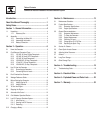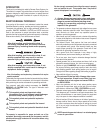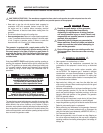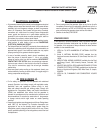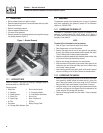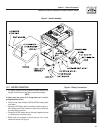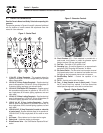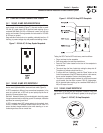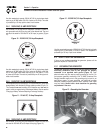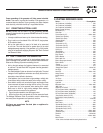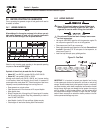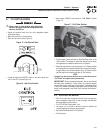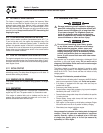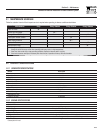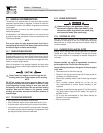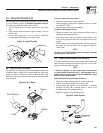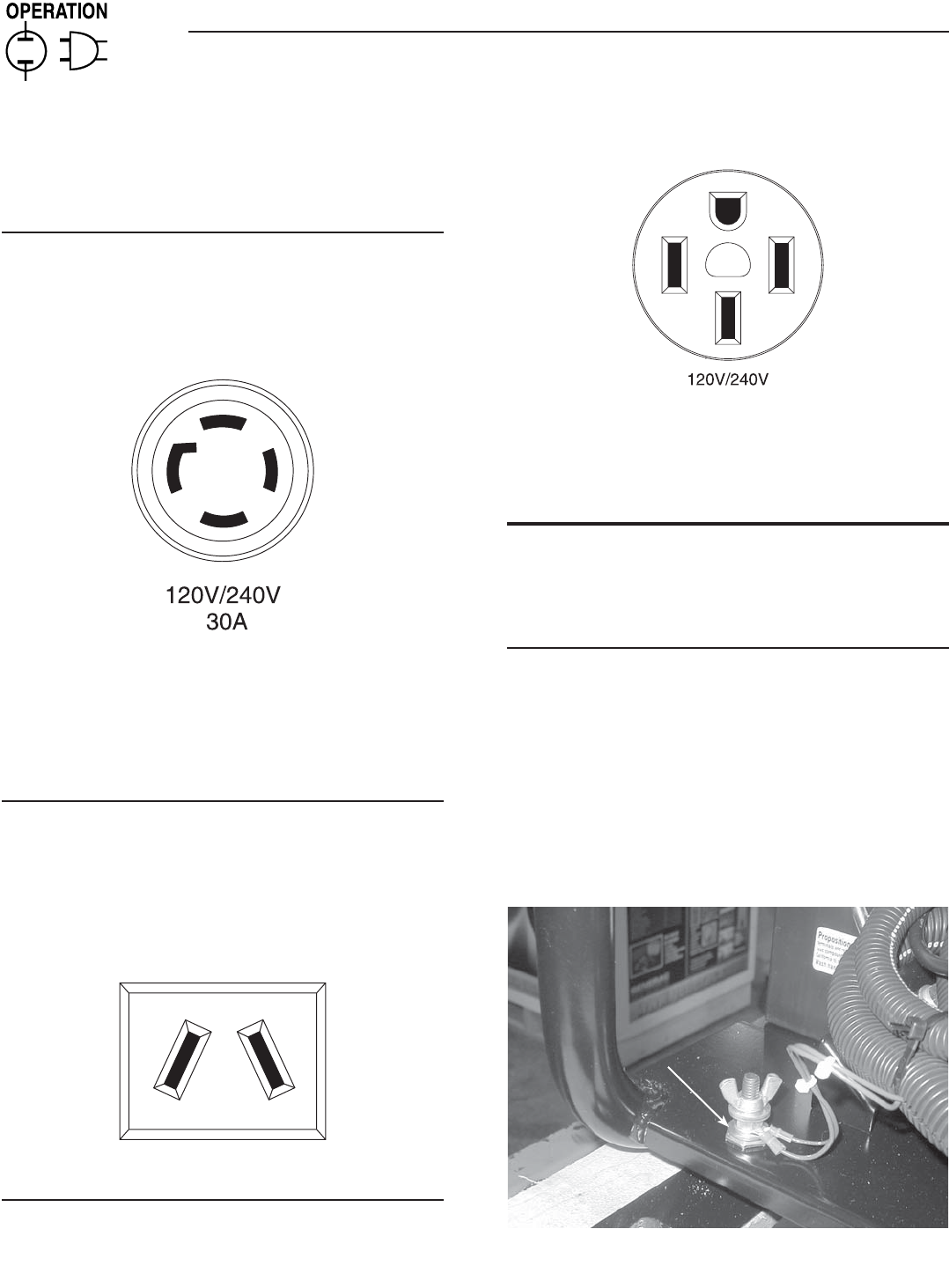
Use this receptacle to operate 120 Volt AC, 60 Hz, single phase loads
requiring up to 3600 watts (3.6 kW) of power at 30 Amps. The outlet
is protected by a 30 Amp push-to-reset circuit breaker.
2.2.4 120/240 VAC, 30 AMP RECEPTACLE
Use a NEMA L14-30 plug with this receptacle. Connect a suitable 4-
wire grounded cord set to the plug and to the desired load. The cord
set should be rated for 250 Volts AC at 30 Amps (or greater) (Figure
10).
Figure 10 - 120/240 VAC, 30 Amp Receptacle
Use this receptacle to operate 120 Volt AC, 60 Hz, single phase loads
requiring up to 3600 watts (3.6 kW) of power at 30 Amps or 240 Volt
AC, 60 Hz, single phase loads requiring up to 7200 watts (7.2 kW)
of power at 30 Amps. The outlet is protected by two 30 Amp push-to-
reset circuit breakers.
2.2.5 12 VOLT DC, 10 AMP RECEPTACLE
This receptacle permits recharging a 12 Volt automotive or utility style
storage battery with the battery charge cables provided (Figure 11).
This receptacle can not recharge 6 Volt batteries and can not be
used to crank an engine having a discharged battery. See the section
"Charging a Battery" before attempting to recharge a battery.
Figure 11 - 12 Volt DC, 10 Amp Receptacle
2.2.6 120/240 VAC, 50 AMP RECEPTACLE
Use a NEMA 14-50 plug with this receptacle. Connect a 4-wire cord
set rated for 250 Volts AC at 50 Amps to the plug (Figure 12).
Figure 12 - 120/240 VAC, 50 Amp Receptacle
50 A
Use this receptacle to operate 120/240 Volt AC, 60 Hz electrical loads
requiring up to 12,000 watts (12.0 kW) of power. This receptacle is
protected by a 50 Amp 2-pole circuit breaker.
2.3 HOW TO USE THE GENERATOR
If there are any problems operating the generator, please call the
generator helpline at 1-800-333-1322.
2.3.1 GROUNDING THE GENERATOR
The National Electrical Code requires that the frame and external
electrically conductive parts of this generator be properly
connected to an approved earth ground (Figure 13). Local
electrical codes may also require proper grounding of the unit. For
that purpose, generally, connecting a No. 10 AWG (American Wire
Gauge) stranded copper wire to the grounding wing nut and to an
earth-driven copper or brass grounding rod (electrode) provides
adequate protection against electrical shock. However, local codes
may vary widely. Consult with a local electrician for grounding
requirements in the area.
Figure 13 - Grounding the Generator
8
Section 2 – Operation
Commercial-Industrial-Residential Portable Generator System
Generator Ground Lug



